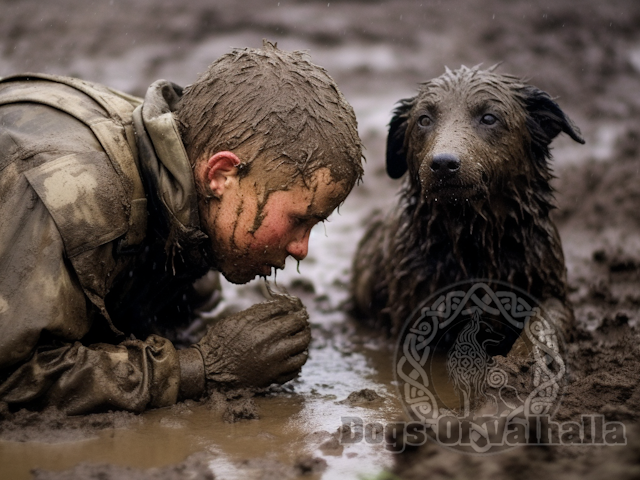Throughout history, dogs have played a significant role in our lives, often going above and beyond in their loyalty, bravery, and service. These remarkable animals have saved lives, protected communities, and provided invaluable support to humans in various capacities. However, recognizing the contributions of these canine heroes raises a moral dilemma. Should we acknowledge and honor their deeds as we do for human heroes?
One shining example of a canine hero is Hachiko, an Akita dog from Japan. Known for his unwavering loyalty, Hachiko waited at a train station every day for nearly a decade, faithfully anticipating the return of his deceased owner. His story touched the hearts of many, symbolizing the extraordinary bond between humans and dogs. Hachiko’s dedication and devotion continue to inspire people worldwide, prompting the question: Should we not recognize and celebrate such profound displays of loyalty?
Another exceptional example is Balto, a Siberian Husky who played a vital role in delivering life-saving medicine during the 1925 serum run to Nome, Alaska. Balto and his team braved harsh conditions and treacherous terrain to transport the medicine, ultimately saving countless lives. The courageous efforts of Balto and his fellow sled dogs highlight their selflessness and willingness to put themselves at risk for the well-being of others. Should we not honor their bravery and acknowledge their contribution to society?
In the realm of law enforcement, we encounter canine heroes like K9 Officer Jethro. Jethro, a German Shepherd, gave his life while protecting his handler and fellow officers during a confrontation with an armed suspect. His sacrifice exemplifies the profound bond between police dogs and their handlers, as well as their unwavering dedication to the safety of the community. Should we not recognize their bravery and sacrifice in the same manner we do for human law enforcement officers?
Service dogs also deserve recognition for their invaluable contributions. Take the case of Bretagne, a search and rescue dog who worked tirelessly in the aftermath of the September 11th attacks. Bretagne and her handler scoured the rubble of the World Trade Center, searching for survivors and bringing hope to devastated families. Her heroism and resilience embodied the indomitable spirit of all search and rescue dogs. Should we not honor their tireless efforts and the lives they save in the same way we do for human search and rescue teams?
While some may argue that dogs cannot comprehend the significance of recognition, their impact on human lives cannot be denied. These canine heroes have brought comfort, joy, and even saved lives. Their actions inspire us, reminding us of the selfless love and unwavering loyalty that dogs bring to our world. By recognizing their contributions, we not only honor their remarkable achievements but also acknowledge the unique bond between humans and dogs.
As we grapple with the moral dilemma of recognizing canine heroes, it is essential to remember that honoring these animals does not diminish the achievements of human heroes. Rather, it expands our understanding of heroism and highlights the extraordinary capabilities of dogs. By celebrating their contributions, we not only pay tribute to their individual acts of courage but also promote a culture of respect and appreciation for all beings who make a positive impact on our lives.
In conclusion, the moral dilemma surrounding the recognition of canine heroes is a complex one. While they may not comprehend the concept of recognition in the same way humans do, their contributions to society and the lives they touch cannot be understated. By honoring these exceptional animals, we acknowledge the power of the human-dog bond and the significant impact they have on our world. Just as we celebrate the achievements of human heroes, let us also recognize and pay tribute to the extraordinary contributions of canine heroes.

Explore the ranked best online casinos of 2025. Compare bonuses, game selections, and trustworthiness of top platforms for secure and rewarding gameplaycasino slot machine.